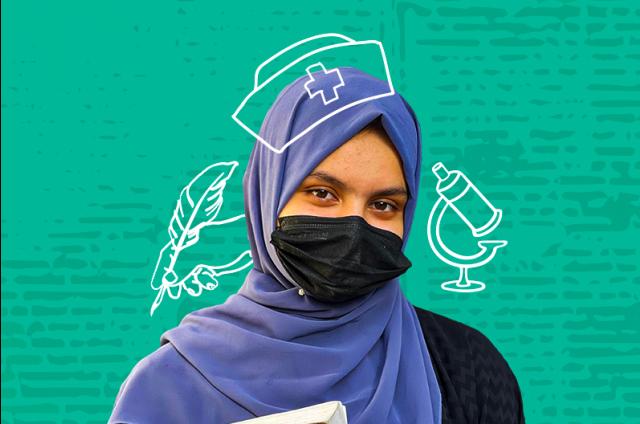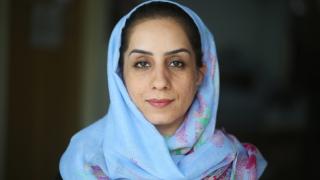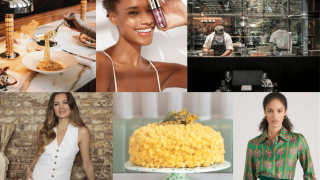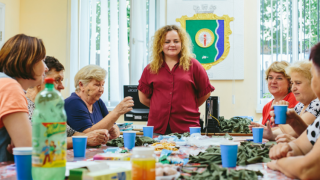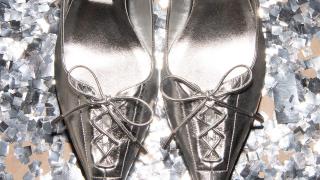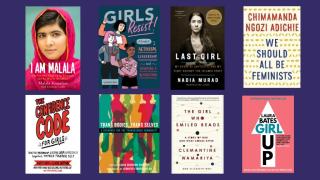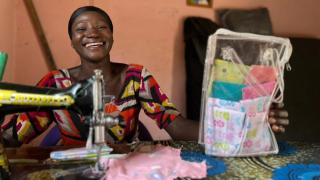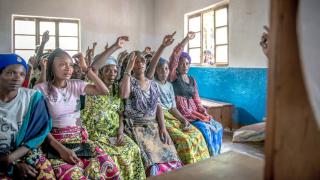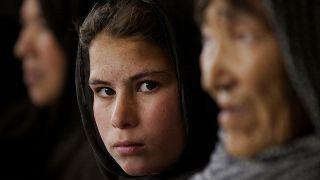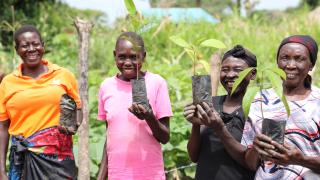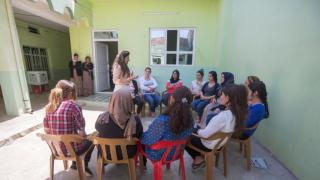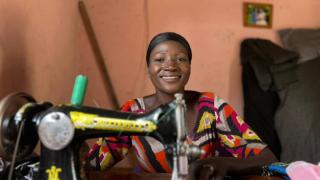Empowering Reads: A Journey Through Inspirational Books for Women and Girls
Reclaiming Their Stories: Celebrating the power of young women
Books to Inspire, Empower and Educate Adolecent Girls Worldwide
We are excited to announce the launch of Women for Women International's expanded Adolescent Girls Programme, an extension of our Stronger Women, Stronger Nations curriculum. This programme aims to support teenage girls aged 16-17 in conflict-affected countries, where they face extreme poverty, gender-based violence and limited educational opportunities. Globally, 119 million girls are not in school (source: UNICEF), highlighting the urgent need for intervention.
Our comprehensive curriculum covers gender equality, health, financial literacy, vocational skills, and future planning — designed to support young women and prepare them for economic independence. With a rights-based, survivor-centred approach, we ensure the safety and support of every participant.
Through our pilot programme in Rwanda and planned expansions to Iraq, Nigeria, and Afghanistan by the end of 2025, we aim to reach 3,000 girls.
In line with this mission, we've curated a selection of powerful books that resonate deeply with the themes of our Adolescent Girls Programme. These books connect to the rights of adolescents, addressing education, empowerment, resilience and activism. Happy reading!
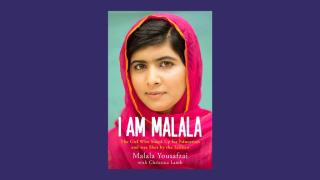
I Am Malala
Malala Yousafzai
Malala Yousafzai, the youngest-ever Nobel Prize laureate, is a global advocate for girls’ education. Her courageous stand against the Taliban’s oppressive policies has inspired millions, and her memoir tells the story of her incredible journey.
Why read it? I Am Malala: The Girl Who Stood Up for Education and Was Shot by the Taliban mirrors the challenges many adolescent girls face in our programme — the right to education which is often denied due to conflict and discrimination. Malala's story of resilience and activism serves as a reminder that education is key to empowerment.
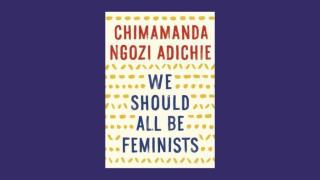
We Should All Be Feminists
Chimamanda Ngozi Adichie
Chimamanda Ngozi Adichie is a Nigerian author and feminist who has written widely about identity, gender and social issues. Her TEDx talk, which inspired this book, is a groundbreaking manifesto for gender equality.
Why read it? Adichie’s work aligns with our curriculum’s emphasis on gender equality and women’s rights. For teenage girls navigating a world that often marginalises them, her call for empowerment and inclusion is vital. With eloquence and passion, Adichie breaks down what feminism means today, making it accessible and relatable for people from all walks of life.
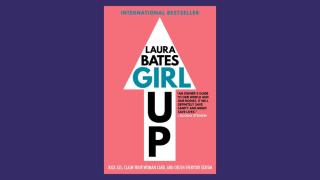
Girl Up
Laura Bates
Laura Bates is the founder of the Everyday Sexism Project, which has been a powerful platform for highlighting and addressing gender inequality.
Why read it? Packed with advice and inspiration, this book empowers young women to tackle sexism, build their confidence and assert their place in the world. Bates connects to the themes of our programme by encouraging young girls to challenge societal norms, build self-esteem and stand up against gender-based violence.
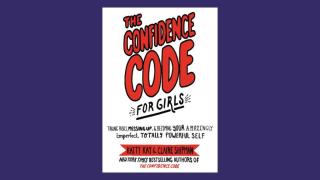
The Confidence Code for Girls
Katty Kay and Claire Shipman
Katty Kay is a journalist with BBC World News, and Claire Shipman is a journalist and advocate for women’s leadership. Together, they’ve written a book that aims to help girls break free from societal pressures and embrace their authentic selves.
Why read it? This book emphasises confidence and self-worth, key areas of focus in our Adolescent Girls Programme. By encouraging girls to take risks and embrace their unique strengths, it fosters the resilience and leadership skills our curriculum aims to build.
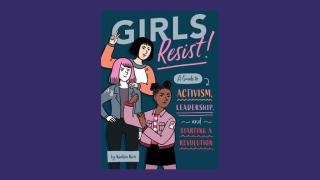
Girls Resist!
KaeLyn Rich
KaeLyn Rich is a writer and activist who works to promote social justice, particularly for youth and women.
Why read it? For young girls looking to make a difference, this book offers a step-by-step guide to activism, making it the perfect handbook for budding change-makers. Rich’s focus on activism mirrors our efforts to equip adolescent girls with leadership skills and the courage to advocate for their rights. This book is a powerful tool for those looking to effect change in their communities.
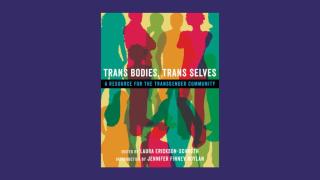
Trans Bodies, Trans Selves
Laura Erickson-Schroth
Laura Erickson-Schroth is a psychiatrist and transgender health advocate who focuses on promoting the well-being of transgender individuals.
Why read it? This invaluable resource tackles critical issues for the transgender community, providing education and support for individuals and allies alike. It aligns with our mission of creating safe spaces for all girls, regardless of gender identity.

The Girl Who Smiled Beads
Clemantine Wamariya
Clemantine Wamariya is a survivor of the 1994 Genocide Against the Tutsi in Rwanda and an advocate for displaced persons and refugees. Her memoir shares the story of her incredible personal journey.
Why read it? Clemantine’s story mirrors the experiences of many adolescent girls in our programme, who are often displaced by conflict and violence. Her story is a powerful testament to the strength it takes to overcome trauma and reclaim one’s future.
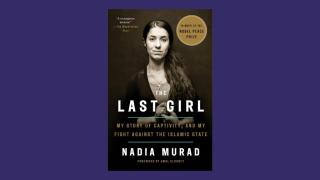
The Last Girl
Nadia Murad
Nadia Murad is a Yazidi human rights activist and Nobel Peace Prize laureate. She advocates for survivors of sexual violence and is a voice for the Yazidi community.
Why read it? Nadia’s story resonates deeply with the girls in our programme, many of whom are survivors of gender-based violence. Her activism and courage inspire young women to speak out and seek justice.
Read more
With this global rollback of women’s rights, political polarisation, international aid cuts and the escalation of conflicts, the news provides a constant barrage of devastating images and negative statistics. It’s no wonder many of us feel angry and hopeless. Yes the women we serve, living in the world's most dangerous places, continue to dream and believe in a brighter future. Read their advice on how to hold onto hope.
Women’s History Month is a time to come together and celebrate the resilience, strength and achievements of women worldwide. Read our blog to discover the brands making a real impact - and how your support can help women worldwide find their power.
Women Holding Ukraine Together
subtitle:
Anna Orel from The Andreev Family Foundation, our partner organisation in Ukraine, shares her experience of war and supporting women - three years after Russia's full-scale invasion.
She shares: "This female strength inspires me. Even in the darkest times, there are people with light in their hearts."
According to the latest UN figures, 305 million people will require humanitarian assistance and protection this year – five million more than last year. Our watch list below outlines eight humanitarian emergencies that we believe need special attention in 2025, specifically for the women and girls impacted.
Shop with Purpose this Holiday Season
subtitle:
This holiday season, together with our partners we are inviting you to shop with purpose. From make-up and skincare to jewellery and fashion, find the perfect gift and help drive positive change for women worldwide, providing them with access to education, vocational training, and financial independence.
We are excited to announce the launch of Women for Women International's expanded Adolescent Girls Programme, an extension of our Stronger Women, Stronger Nations curriculum. In line with this mission, we've curated a selection of powerful books that resonate deeply with the themes of our Adolescent Girls Programme. These books connect to the rights of adolescents, addressing education, empowerment, resilience and activism. Happy reading!
More than two billion people around the world experience a period every month - but around 500 million cannot afford to manage them safely. Access to hygienic period products and safe spaces in which to use them is essential – as is our right to manage our periods without shame. Here’s how period poverty affects people in conflict – and what we can do to prevent it.
September marks a new beginning for many as students around the world return to school. The fresh scent of new notebooks, the anticipation of learning, and the joy of reuniting with friends are moments cherished by many. But for countless women and girls living in conflict zones, this simple joy is unattainable.
Since the Taliban’s return to power in Afghanistan in August 2021, Afghan women have experienced profound changes in their daily lives. The de facto government has reinstated many restrictions, severely limiting the rights and freedoms of women and girls.
Yet, in the face of these challenges, Afghan women have shown extraordinary determination and strength, finding ways to resist and adapt. Here, we explore five significant ways their lives have changed, highlighting both the difficulties they face and their ongoing fight for their rights.
Why is a climate justice lens important?
subtitle:
Nisha Singh, Senior Global Policy and Advocacy Manager, explains why Women for Women International uses a climate ‘justice’ lens to approach our programming and advocacy to strengthen women’s resilience at the intersection of conflict and climate shocks.
As we approach the tenth anniversary of the Yazidi genocide, we reflect on the remarkable journey of Yazidi women in our Stronger Women Stronger Nations programme, from conflict to realising their power. This milestone is not only a solemn reminder of the atrocities they faced but also a testament to their resilience and strength.
A deeper dive into our impact
subtitle:
2023 was a particularly challenging year for women survivors of war and conflict worldwide, with numerous ongoing and new crises impacting their lives. These global conflicts underscored the importance of our mission.
We're proud to share our impact with you, our global community, and are grateful for your steadfast commitment in helping us reach those who are often forgotten.

